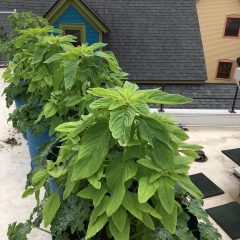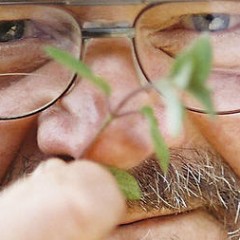
Edible Landscape: Basil, Beans, Tomatoes and Peppers!
One of my favorite things about gardening is the sense of accomplishment I get when I see the growth of the plants as the buds and flowers form, and we have the chance to start harvesting. We got a bit of a late start this year with the Deli’s edible landscape, but we’ve already picked […]
Read more »

Zingerman’s Art for Sale